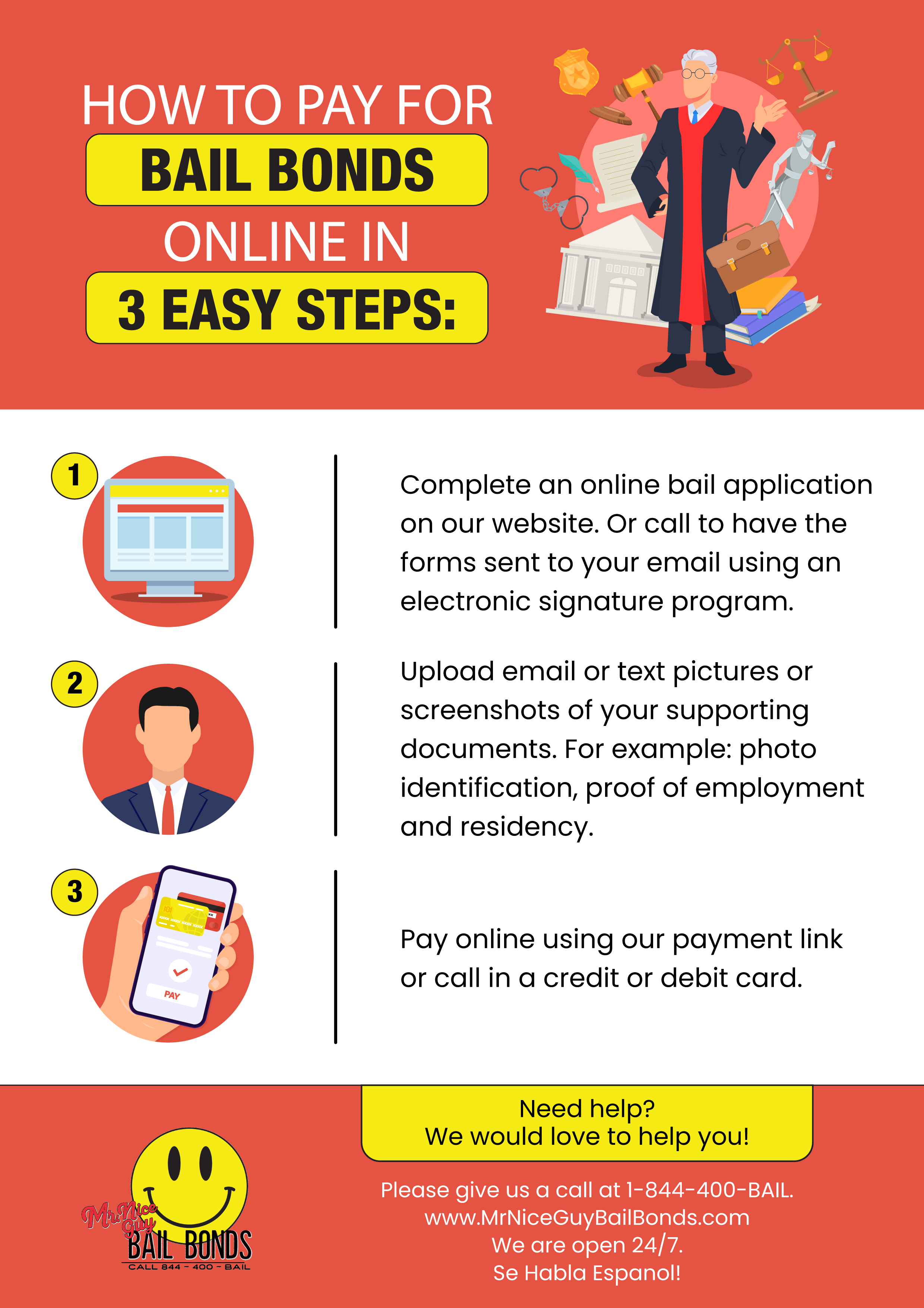Your Complete Overview to Understanding Bail Bond Conditions
Navigating the intricacies of bail bond terms and problems is an important element of effectively taking care of legal difficulties. Numerous kinds of bail bonds and their associated prices can dramatically affect the decision-making procedure.
What Is a Bail Bond?
A bail bond is a contractual contract between an offender, a bail bondsman, and the court, guaranteeing that the defendant will stand for arranged court proceedings for their launch from wardship. bail bonds service. This legal tool serves to protect the passions of the court by providing a monetary reward for the accused to follow judicial needs
Upon the offender's launch, the bail bond continues to be basically up until the verdict of the litigation. Failing to appear in court may result in forfeit of the bond amount, and the bail bondsman may go after the accused to recoup the prices incurred. bail bonds service. Consequently, understanding the dynamics of bail bonds is vital for offenders and their households as they browse the judicial process.
Trick Terms Clarified
Comprehending bail bonds entails acquainting oneself with a number of crucial terms that are indispensable to the procedure. One necessary term is "bail," which refers to the amount of cash needed to protect the release of an offender from custodianship while waiting for trial. "Bondsman," or "bondsman," is an additional important term, denoting a professional who gives the essential funds for bail for a charge, generally a percent of the overall bail amount.
" Security" is likewise significant; it stands for assets vowed by the offender or co-signer to guarantee the bond's repayment. If the offender stops working to show up in court, the collateral may be surrendered. The term "indemnitor" refers to the person that accepts be accountable for the bond, commonly a family participant or friend of the accused.

Kinds Of Bail Bonds
Numerous types of bond bonds offer different objectives and accommodate particular circumstances in the lawful system. The most usual kind is the surety bond, where a bond bondsman guarantees the offender's appearance in court for a cost, normally 10% of the bail quantity. This type is commonly used due to the fact that it enables people who can not manage the full bail to secure their launch.
Another kind is the cash bond, which calls for the full bond amount to be paid in cash money to the court. This option is usually liked for reduced bail quantities, as it ensures the accused's release without entailing a bondsman (bail bonds service). If the accused shows up in court as required, the money is reimbursed at the final thought of the instance
Furthermore, there are property bonds, where genuine estate is used as collateral for the bond quantity. This can be a practical choice for people that own building but lack liquid funds.
Last but not least, federal bonds relate to federal situations and are commonly more difficult to get, commonly calling for the assistance of a specialized bondsman. Comprehending these variants is essential for browsing the bond system properly.
Usual Misunderstandings
Mistaken beliefs concerning bail bonds frequently cause complication for accuseds and their households. One common myth is that paying bail guarantees release from prison. In truth, bond serves as an economic guarantee that the offender will certainly show up at their set up court hearings. If they fall short to do so, the bond amount may be waived.
Another common false impression is that all bond bonds are the exact same. There are a number of sorts of bail bonds, including guaranty bonds, money bonds, and building bonds, each with unique attributes and demands. Recognizing these differences is essential for making notified decisions.
Furthermore, many individuals believe that bail bond representatives are simply finance sharks. Truthfully, accredited bail bond representatives operate within a regulated structure, charging a costs for their services, which is normally a portion of the total bond amount.
Last but not least, some presume that only wealthy people can afford bond. Bail bond services are made to assist those that may not have immediate access to huge sums of cash, permitting a more comprehensive section of the populace to secure their launch while waiting for trial. Clear understanding of these misconceptions can significantly relieve tension throughout a tough time.
Understanding Charges and Costs
While browsing the bail bond procedure, it is essential to know the charges and prices connected with protecting a bond. Bond bonds commonly need a non-refundable costs, which is a percent of the complete bail quantity established by the court. This costs typically varies from 10% to 15%, depending on state regulations and the bail bond firm's policies.
In addition to the costs, there might be various other costs included. These can consist of administrative charges for processing the bond, collateral fees if possessions are called for to secure the bond, and potential revival costs if the bond requires to be expanded. It is important to ask the bail bond agent for an browse around here in-depth malfunction of all expenses to prevent unforeseen expenditures.
Verdict

Comments on “Hassle-Free with Bail Bonds Anywhere.”